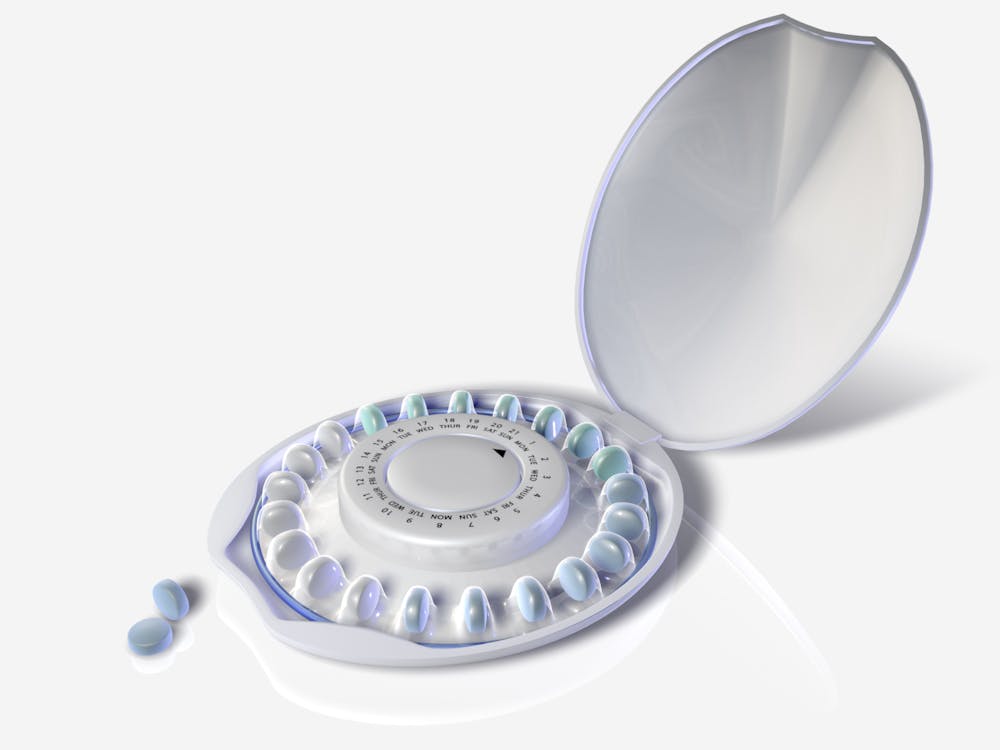
The pros to birth control pills are pretty obvious. Aside from not getting pregnant, the pill promises clearer skin, bigger boobs, predictable periods and the end to cramps.
The side effects seem to pale in comparison — the possibility of light spotting between cycles, breast tenderness, fluid retention, nausea and mood changes.
This information was clearly stated to me when I became sexually active, and the choice to start the pill seemed obvious.
Of course, I knew about alternative birth control methods to prevent teenage motherhood that didn’t require any hormonal manipulation, but clear skin and no cramps was an offer too good to pass up.
I only wish someone would have told me that those side effects are no joke.
I know I’m not the only one who, for months, just didn’t feel like herself. I would wake up, dutifully take the pill, and proceed to have days full of oversensitivity and fatigue. All I wanted to do was sleep and stay at home, while simultaneously wishing I had the energy to be productive and social.
When I got to Hopkins, it seemed to go downhill from there. I’m sure there were other things that factored into my overall gloomy outlook on life, but my hormones definitely dictated what kind of week I was going to have.
I remember calling my mom in tears freshman fall, trying to verbalize how I was feeling. And she was perfectly able to pinpoint exactly where I was in my cycle without even having to ask me when I got my last period. Maybe she was really good at guessing, but more likely, she simply knew my behaviors better than I knew them myself. Thanks, Mom.
She was the one who was always wary of me taking something that suppresses and manipulates hormones. And obviously, there was some merit in that concern. Birth control pills, although not a new technology, still have very obscure research relating them to a decline in mental health.
I know dozens of peers who have had the exact same symptoms as I have, yet when I repeatedly went to gynecologists, no one ever recommended that I stop taking my birth control.
Then, one day I just stopped taking it. And my life changed.
Now, I’m no doctor. I’m not going to tell strangers via The News-Letter to stop taking any kind of prescription medication before consulting their physician. More importantly, this is not an endorsement for unsafe sex in the slightest.
But, after I stopped taking my birth control, colors were brighter. My mornings, which use to consist of thirty-minute pep talks to get out of bed, now were a time for me to hopefully meditate on what my day had in store.
The grey cloud I had been living in had suddenly lifted, and I felt like I was myself again for the first time in a really long time.
The only drawback is that, in my experience, the person responsible for consistent forms of birth control is always the girl. That may be a generalization, but aside from vasectomies, there aren’t a ton of options for men out there to prevent unwanted pregnancies.
Unfortunately, I knew that I would have to figure out another kind of birth control that kept my hormones in check.
Preferably one that gave me all those wonderful benefits from the pill I used to take, but without the side effects. Many of my peers have opted to get intrauterine devices (IUDs), but I was too nervous to commit to such a permanent, and invasive, method.
Thus, began my years-long quest for the perfect birth control pill. And last summer, I found it.
The brand that I take now does not have sugar pills for the first two months. That means I only get my period once every three months.
If you don’t know what sugar pills are or how birth control works, dedicate an afternoon to looking it up. Although I believe this is information that everyone should have received in their high school sex ed class, I know we didn’t all get that awkward adolescent luxury.
It took me years to find a pill that works for me. It’s still not perfect — I know people who take the same one who have struggled with gaining weight. But it was better than all the other ones I tried before.
The pill is not a cookie-cutter mode of birth control. There are countless brands out there, all with different levels of estrogen and progesterone. Some will work better for you than others, which makes sense considering that everyone’s hormone levels are different.
What I want to say, which I wish someone had told me when I first started this whole process, is that it can take you time to find the perfect pill.
More importantly, when you begin taking one, listen to your body as carefully as you possibly cam. Have you been having more mood swings than usual? Is your skin breaking out? Are you periods heavier?
The second you experience any side effects, tell your doctor. It can be hard to track your mental health — I wasn’t even able to do it without help from my mom — but you shouldn’t be putting anything into your body without knowing and being okay with what it’s doing to you.
If you want to start the pill, I suggest you go to the Student Health and Wellness Center with a long list of questions.
Your doctor should be one of your closest confidants, and they should know everything about you, from how heavy your flow is to how often you have sex.
The best way to avoid the drawn-out, uncomfortable mission I went on to find my perfect pill is by being as honest as you can, with yourself and with your doctor.





